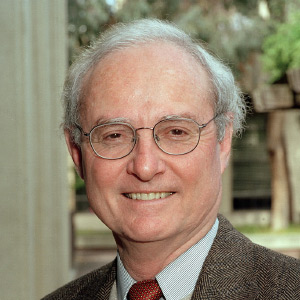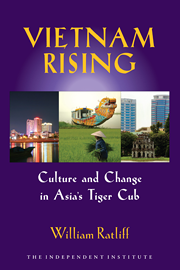Some pundits have taken to calling the violent military repression of post-election protesters in Iran a “Tehran Tiananmen.” Clearly “a Tiananmen” has come to mean a military dispersal of largely peaceful demonstrators, taking its name from the Chinese military’s shutting down of nearly two months of student protests in Beijing’s Tiananmen Square in June 1989. But while this journalistic shorthand adds drama to today’s commentary, it also misses the broader consequences of what happened in China at that time.
On the recent twentieth anniversary of what has come to be known as the Tiananmen Massacre, some Western analysts opined that while the students lost the battle for political rights in 1989, they won the war. But a realistic postmortem of the showdown and aftermath refutes that politically feel-good conclusion.
This reality has recently been shouted from the grave by the last reformer to hold the top post of General Secretary in the Communist Party of China (CPC). That was Zhao Ziyang, who was purged during the crisis because he refused to order military action against the students. His posthumous memoirs, Prisoner of the State: The Secret Journal of Premier Zhao Ziyang, provide an unprecedented inside story of how the CPC blamed its top leader for tolerating the event that embarrassed (and some said threatened) the state. He spent the rest of his life under house arrest.
Little did the party imagine that Zhao would use those years of isolation (1989–2005) to secretly tape-record his analysis of the events he lived through and often guided as well as his evaluations of China’s economic reforms and post-1989 political stagnation. Or that those tapes would be smuggled out of the country and published for the Tiananmen Square anniversary in English and Chinese—though not in mainland China.
A little history helps to put Zhao’s story into perspective.
Beijing University students first flooded Tiananmen Square in 1989 to mourn the April 15th death of Hu Yaobang, the reform-oriented CPC chief from 1980 until his demotion in January 1987. Hu had been replaced by Premier Zhao, also a reformer. Both were protégés of patriarch Deng Xiaoping, the most powerful man in China, who in 1980 had chosen them to jointly carry out the most liberalizing economic reforms in Chinese history.
For almost two months the student demonstrations, which built on initially modest demands, ebbed and flowed, and as time dragged on a minority of the most radical students became increasingly vocal, demanding and provocative. Government actions ranged from confused to well-meaning, from alarmist to violent . Long before the tanks actually cleared the Square, any chance of serious political reform was tossed off the agenda.
How could demonstrations go on for so long under a regime hardly known for its indecision or timidity? The party’s top decision-makers were split between the Zhao camp that favored dialogue and Premier Li Peng and followers who wanted to clear the Square immediately. Even so, Zhao thought he found a compromise when in late April Li said he would support dialogue permitting the students to “express themselves freely” before going back to their classes. But according to Zhao the Li camp then did all it could to “block, delay and even sabotage the process.” As policy stumbled along, Deng and lesser party elders were drawn in.
Step by step, at several critical junctures behind Zhao’s back, Li convinced Deng that he had to use military action to guarantee the survival of the economic reform program, a story well known already from the 2001 anthology The Tiananmen Papers containing top-level CPC internal documents. Deng’s mantra became “stability,” not too surprisingly in a country just barely escaping from two centuries of unremitting chaos and finally making productive economic reforms.
What were the main features and consequences of the 1989 Tiananmen developments ?
- Death. The name “Tiananmen” has come to represent the military repression that resulted in the deaths of some hundreds of students and others, but also of hopes for the unprecedented respectful dialogue the vast majority of the students sought with CPC and government officials.
- Ignorance and politics. Many leaders in the West promptly proclaimed that the “massacre” proved the decade of reforms after Mao’s death was a fraud, that China was the same old butchership it had always been. U.S. President George H.W. Bush did not buy this line, but presidential candidate Bill Clinton led the charge when he condemned Bush’s moderation as “coddling butchers from Baghdad to Beijing.” In reality, the prolonged showdown suggested just the opposite, an unprecedented level of relative moderation within the upper ranks of the CPC that caused paralysis which in turn made the drawn-out activities of the students possible.
- Less Political Reform. Despite their bravery and idealism, when the students pushed the showdown with the government to physical confrontation they unwittingly tipped the ideological balance of power within the CPC away from the uneven but relatively positive moves toward political opening that occurred in the 1980s. Since Tiananmen the type of political reform Hu and Zhao sought has generally been thwarted by traditional authoritarian paternalism sharpened on occasion—as with the Falun Gong—by remnants of Maoist brutality. Since post-Tiananmen Chinese have felt powerless to change basic political institutions, they have focused instead on getting ahead economically, with successes that have awed the world.
China has become a model of national economic development over the past three decades, and the state has sometimes played a constructive role in guiding that change. But the state’s greatest contribution was just leaving the industrious Chinese people alone to work hard for their own benefit and make the national economic development happen. Since Tiananmen, significant Chinese political reform has been on hold. Hopefully Tehran’s current troubles will not result in the same prolonged political stagnation that settled upon China after the violent showdown twenty years ago in Tiananmen Square.








